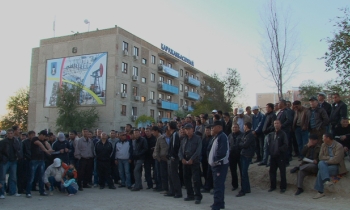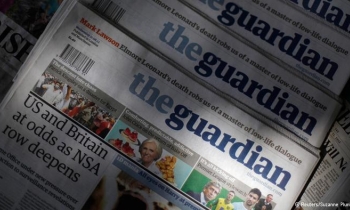A last-minute deal has avoided a split between the United States (US) and other nations over future control of the Internet ahead of the UN summit aimed at reducing the global digital divide.

Negotiators from more than 100 countries agreed late Tuesday night to leave the US in charge of the Internet's addressing system, averting a showdown before the start of the World Summit on the Internet Society (WSIS), which opened in Tunisia on Wednesday. Some observers had suggested that the Internet could have been torn into competing or disconnected networks if the issue of Internet governance had not been resolved.
The deal maintains US control of the Internet through the non-profit Internet Corporation for Assigned Names and Numbers (ICANN) based in California, US. ICANN manages the domain name system, which underpins the Web by mapping site names to their numerical (Internet protocol - IP) addresses. It is expected to have its tender renewed by the US government in summer 2006.
The deal also sets up talks about international cooperation on oversight and policy issues. Countries such as Iran and China had sought UN oversight of Internet governance, while the European Union wanted to water down US powers.
"Let me be absolutely clear: the United Nations does not want to take over, police or otherwise control the Internet," said UN Secretary General Kofi Annan. "Day-to-day running of the Internet must be left to technical institutions, not least to shield it from the heat of day to day politics.
Many nations have argued that the global economic and social importance of the Internet justifies wider international governance. The US, however, has been reluctant to give up its control, warning that less tolerant regimes could try to impose controls on Internet content.
The new deal will create an Internet Governance Forum (IGF) for an initial five-year term to hold talks on all Internet issues, including problems such as spam and computer crime. The IGF will also be allowed to "build on the existing structures of Internet governance" but will have no concrete powers.

Under the agreement, ICANN will continue to oversee the system that matches addresses like "newswatch.in" with numerical addresses that computers can understand. Individual countries will have greater control over their own domains, such as India's .in or UK's .uk. Disputes have arisen on numerous occasions between national governments and independent administrators assigned to manage these domains by ICANN.
The accord "preserved the unique role of the US government in ensuring the reliability and stability of the internet", said US negotiator David Gross, who is the coordinator for international communications and information policy. "There's nothing new in this document that wasn't already out there before. We have no concerns that it could morph into something unsavoury," Gross said.
The European Union said in a statement that the agreement would lead to "further internationalization of Internet governance, and enhanced intergovernmental cooperation to this end".
"In the short term, US oversight is not immediately challenged, but in the long term they are under the obligation to negotiate with all the states about the future and evolution of Internet governance," a member of the EU delegation who declined to be identified, according to a Reuters report.
Shashi Tharoor, UN under secretary general for communications, was quoted by New Scientist as saying that the agreement was crucial to continue to build on freedom of expression. "We need more voices in the process and we need more voices on the Net," Tharoor told journalists.
Other delegates gave a more cautious welcome. "The worst has been avoided," said Bernard Benhamou, a member of the French delegation. "But we're not sure that the best is to come in the future."
The official focus of the three-day summit is bridging the digital divide between the world's richest and poorest nations. The event opened with UN secretary general Kofi Annan calling for information technology to be used to help build a better life for people in some of the world's poorest countries.
"There is a tremendous yearning, not for technology per se, but for what technology can make possible," Annan told the opening ceremony in Tunis, urging participants to "respond to that thirst".









